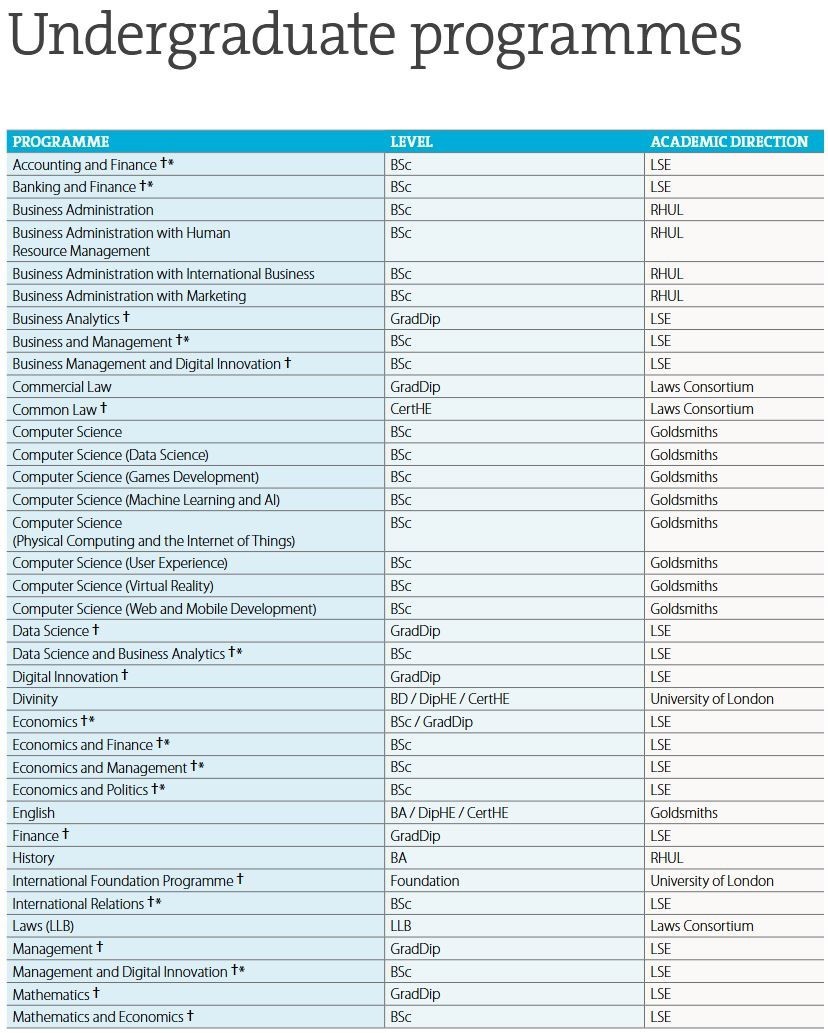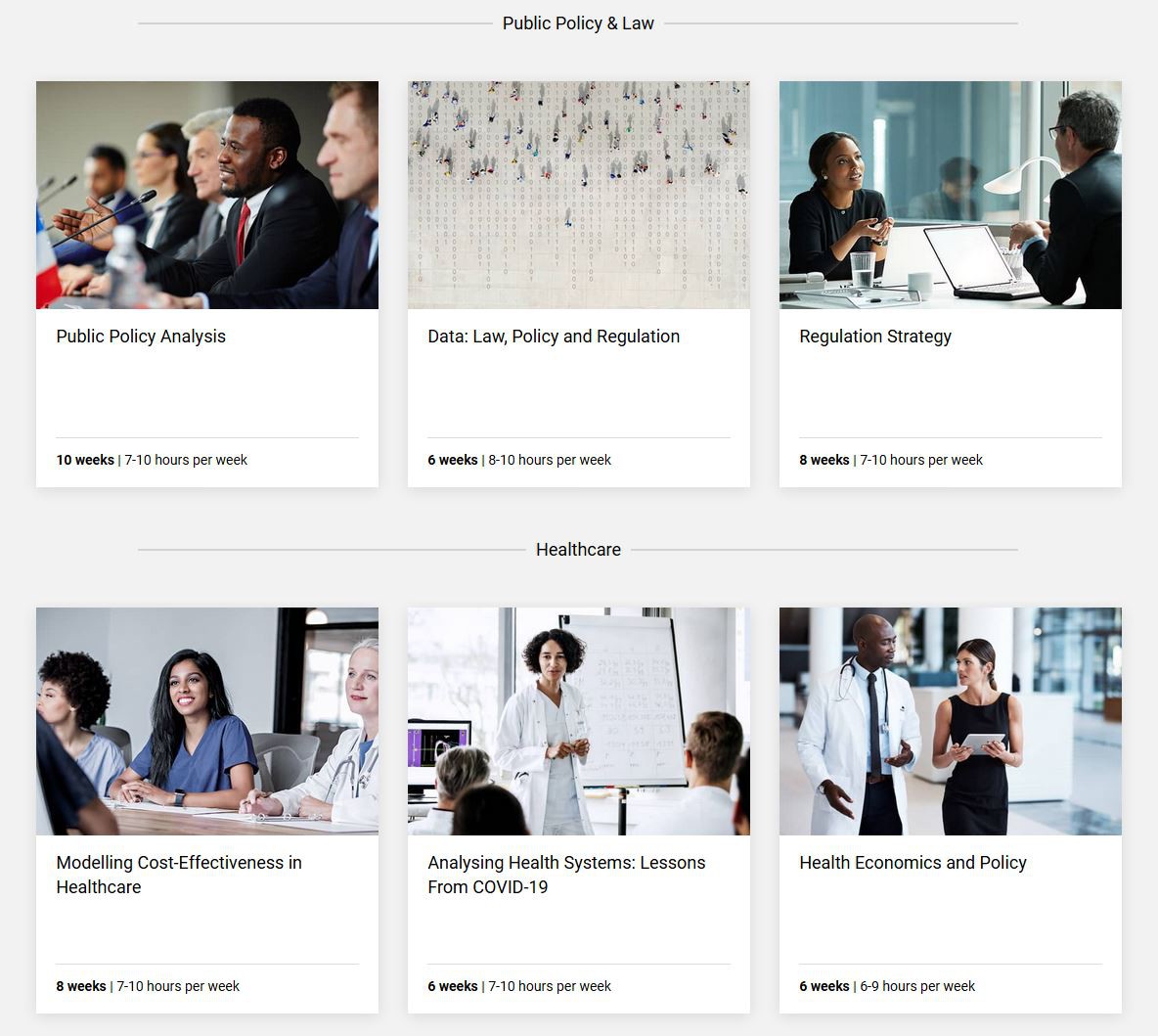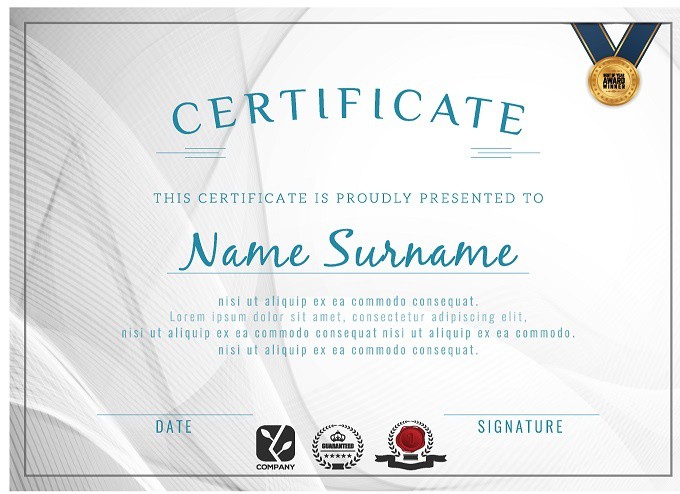Types of Online Degrees
What is the Difference between a Bachelor and Master?
What are Certificate Courses?
What Should You Look For?
How Not to Waste Your Money on Online Education?
Bachelor's Degrees

Countries are very different in the way they implement online study modes and degree programs.
In general, a Bachelor's degree is a good foundation for your future career. Wherever you will apply in the future, the first and most important document is your degree. It gives every employer a first understanding of your abilities, your commitments and general intellect.


If you want to work abroad, your visa type will be linked to your degree. General qualifications count towards your visa application, which in many cases require a Bachelor's degree as the bare minimum. But there is a problem: getting a Bachelor’s degree solely via online studies while living in your home country is not that easy.
First, the education systems in many countries put a hold on 100% online degrees. They believe in the old system of in person courses, discussions and teaching in classes to maintain a high quality of national degrees. This is the case for the US, where there are literally no fully online supported bachelor programs.
Second, the universities don’t want to throw around their degrees. It would reduce and limit their standing and reputation globally, if the general requirements for a degree are too easy or too broadly accessible. But on the other hand, distance study students are willing to pay a lot of money for certifications and degree programs.
For universities, distance study programs can be very lucrative. They yield well and are easy to scale, while just providing the absolute minimum of teaching and learning support.
Requirements
In most cases, you will need two things:
1. High School Diploma with grades (certified copy via an embassy)
2. For foreign citizens English Level Certificate (certified language level test like Toefl)
Additional things related to your educational background maybe required, e.g. your high school math GPA.
Study Mode
(Example for University of London Distance Study Programs)
All your study materials will be available online. Often, there will be a distinction between different options like studying independently, via learning center or on campus. As an independent learner, you can study from your home country on your own schedule.
Some universities do have regular online tasks, most of them don’t. The degree is solely dependent on your yearly assessments and their grades. After you've finished 4 assessments every year for 3 years, you will receive your Bachelor’s diploma.
The VLE (Virtual Learning Environment) will have a forum which you can use to talk to your fellow students and an instructor. This instructor is most likely a grad student or another employee, not a professor.
The VLE will have one study guide for this specific course, and that’s it. The study guide was written many years ago and most likely won’t have the recent developments from the field of study of the last 5-10 years in them.
Then there are essential textbooks. Very very expensive big, heavy textbooks from the most important professors and researchers around the globe, which contain all the important information for one subject. They can cost up to $200. To succeed in the assessments, you will need to understand the study guide 100% and went through the most important parts of the essential books.
To prepare for the assessment, there will be commented previous assessments made available. But don’t care about the examiner's comments, they will lack the same motivation from the editors like the study guides.
The first 4 modules every freshman has to take are structured completely different, than the ones you have to take in year 2 and 3. The first 4 modules are fully structured, from the first to the last chapter. Each chapter contains outside material to test your knowledge with online tasks. You will notice in year 2, that the next courses literally contain one download button for the study guide, nothing more.
Every year from May to June you will sit a maximum of 4 assessments. Every assessment is held in a local teaching center for 3 hours. The British Council is the main foreign representation of UK universities. You will go there to sit your exam in sometimes a very noisy environment. They will forward your exam to the UK.
More expensive online degree programmes may offers additional tutoring and small class discussions in the online forum, linked to weekly or monthly tasks. Despite these additional resources, the assessment preparation and general learning outcome will solely depend on your commitment to the difficult course content.
Certificates
What’s the difference to certificates?
Because many universities don’t want to open the floodgate of distance study degrees, they have a workaround: certificates. They can charge even higher prices for short term programs after which the student gets a certificate. This puts the university into a very favorable position: they get huge numbers of distance study students (and their money) while still having very exclusive degrees with a high and good reputation.

It’s a big difference if a university is handing out 2,000 degrees every year for local students or 15,000 degrees for anonymous students around the globe.
But there is a catch with certificates: they don’t do much. As an employer, my first choice are candidates with degrees. 10 different certificates with no correlating degree is a red flag in upper positions.
Common questions for an employer: “Why did he/she get so many certificates but no degree?”, “Was the degree too difficult?”, “Where there other issues?”.
Certificates can really help you find a good job, if your educational foundation is a degree. They let you stand out of the crowd with similar degrees and show an employer that you are willing to learn, educate yourself and want to strive.
If an employer, however, has the choice between a candidate with a Master’s and one with a Bachelor’s degree + a few certificates, the employer most likely will choose the first candidate.
Master's Degrees

Interestingly, many universities don’t have distance study Bachelor’s degree programs, but do offer distance study Master’s degrees. Good examples here are MBAs (Master of Business Administration). Many universities don't offer a B.Sc. in Business Administration, but do offer MBAs. Accept the huge price tag together with other extensive requirements, e.g. 5 years of work experience in the Business Administration field, and you can enroll in an online MBA.

I can only assume that universities use undergraduate degrees as a quality control system for the entrance into the Master’s program. They don’t want to deal with high school grads, but surely can deal with people who already spent 3 years studying at university level.
If you’ll try to find a job, you will find out that good positions are very competitive (50 to 200 applicants) and that around 30-40% of all applicants do have a Master’s degree (which was the case for the jobs I’ve applied for).
The first applicants that get scratched out are people with no degrees at all or only Bachelor’s. If you’ll try to find a good job in an international setting, you most likely will need to have a Master’s or a very competitive work history.
Study Mode
(Example for Global Master of Business Administration Study Programs)
Most online Master's programs require extensive work experience (around 5 years), which normally means that online MBA students are older than other on campus Master's students. Some universities take their online Master's program very seriously and provide an on campus like learning experience. This includes small online classes with discussions, live tutoring and excercises or homework in addition to the final assessment. Other universities, however, structure their online Master's the same way they structure their online Bachelor's: a simple study guide, recommended essential textbooks and an online forum.
Getting a Master's Degree is in general more difficult than a Bachelor's, but much shorter at the same time. While a normal Bachelor's degree takes around 3 years to complete, a Master's degree takes 2 years. If you have other degrees or can provide additional qualifications or certifications, which count towards your prior learning credits, you can get a Master's degree within 1 year.


While Master's degrees are shorter than Bachelor's, they, to the contrary, are more expensive. Universities tend to make online MBA programs really expensive, for no obvious reason. Teaching staff and virtual learning platform will most likely be the same used for Bachelor students. Some online MBA programs have a limit on the maximum amount of new MBA students per term, which could justify the expensive price tag. Other universities don't have such limitations, charge huge amounts anyway. You should ask yourself if $54,000 for a 2 year course is justified or a (huge) waste of money.
My personal experience: I'm not a big fan of these crazy expensive Master's programs. They are too expensive to be of real value. Your ROI for such a degree goes into the decades. You will most likely need to work full time with a high salary for 10 to 20 years to pay off your online MBA degree. In addition to your expenses for the Bachelor's degree, an online Master's is too expensive for the learning experience it provides. You will still learn everything on your own, you will not have the ability to grow a network (which is often a selling point for on campus MBAs) and you will not write a Master's thesis or get any research experience (which again is also a selling point for on campus MBAs). Too expensive, too little value, too simple to be comparable to on campus Master's programs.


